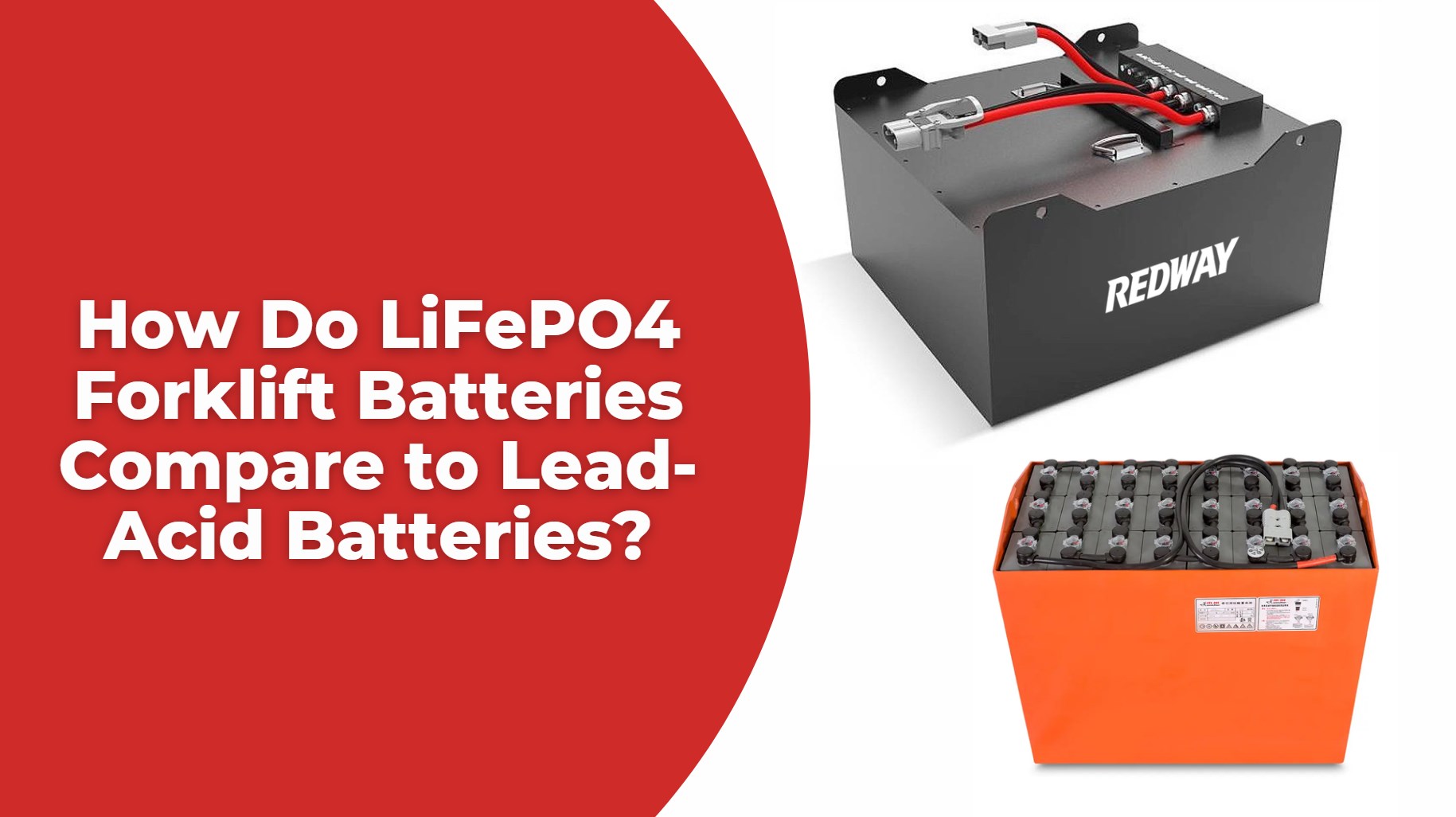LiFePO4 forklift batteries provide longer lifespan, faster charging, higher energy density, and near-zero maintenance compared to lead-acid batteries, making them a more cost-effective choice over time. Businesses adopting LiFePO4 solutions experience less downtime, safer operations, and improved productivity, while lead-acid batteries require more maintenance and have shorter operational life, despite their lower upfront cost.
What Are the Lifespan Differences Between LiFePO4 and Lead-Acid Batteries?
LiFePO4 batteries can last up to 10 years or 4,000 cycles, significantly reducing the frequency of replacements. In contrast, lead-acid batteries typically last 3-5 years or 1,000-1,500 cycles. The longer lifespan of LiFePO4 reduces total cost of ownership and ensures more consistent operational efficiency.
Chart: Lifespan Comparison of Forklift Batteries
Wholesale lithium golf cart batteries with 10-year life? Check here.
| Battery Type | Lifespan (Years) | Charge Cycles | Replacement Frequency |
|---|---|---|---|
| LiFePO4 | Up to 10 | 4,000 | Low |
| Lead-Acid | 3-5 | 1,000-1,500 | High |
How Does Maintenance Differ Between LiFePO4 and Lead-Acid Batteries?
LiFePO4 batteries require virtually no maintenance, eliminating the need for watering, terminal cleaning, or equalizing charges. Lead-acid batteries demand ongoing care, including weekly watering, terminal inspection, and periodic equalization, increasing labor costs and operational complexity.
What Are the Charging Advantages of LiFePO4 Batteries?
LiFePO4 batteries support fast charging, sometimes in as little as 1-2 hours, and enable opportunity charging to maximize uptime. Lead-acid batteries require longer charging periods and cooling times, resulting in more downtime and reduced operational efficiency.
Want OEM lithium forklift batteries at wholesale prices? Check here.
How Do LiFePO4 Batteries Perform Compared to Lead-Acid Batteries?
LiFePO4 batteries maintain consistent power output throughout the charge cycle, avoiding the voltage sag common with lead-acid batteries. Lead-acid batteries have higher internal resistance, which slows charging, reduces energy efficiency, and can negatively impact forklift performance.
What Are the Safety and Environmental Benefits of LiFePO4 Batteries?
LiFePO4 chemistry is thermally stable and avoids hazards associated with acid spills and hydrogen off-gassing. Lead-acid batteries carry risks from corrosive sulfuric acid and hydrogen gas, requiring stricter safety protocols. LiFePO4 batteries also contribute to lower environmental impact and safer warehouse operations.
Chart: Safety and Maintenance Comparison
| Feature | LiFePO4 | Lead-Acid |
|---|---|---|
| Safety | High, sealed units | Risk of acid and gas |
| Maintenance | Minimal to none | Regular watering & cleaning |
| Environmental | Low impact | Moderate to high |
Can LiFePO4 Batteries Reduce Long-Term Operational Costs?
Yes, while LiFePO4 batteries have higher upfront costs, their longer lifespan, minimal maintenance, and faster charging translate to lower long-term costs. Fewer replacements and reduced labor contribute to significant savings and operational efficiency, making them a smart investment for industrial operations.
Are LiFePO4 Batteries the Best Alternative to Lead-Acid for Forklifts?
LiFePO4 batteries are considered the top alternative due to superior performance, longevity, safety, and cost-effectiveness. They support modern warehouse demands, including opportunity charging and consistent power output, and are increasingly preferred by companies looking to improve productivity and reduce total operating costs.
Redway Battery Expert Views
LiFePO4 forklift batteries are transforming material handling operations. At Redway Battery, we emphasize longer lifespan, rapid charging, and maintenance-free designs that dramatically reduce downtime. Businesses can optimize efficiency, enhance safety, and achieve better long-term returns. Our LiFePO4 solutions are designed to meet rigorous industrial demands while minimizing environmental impact.” – Expert from Redway Battery
Conclusion
LiFePO4 batteries outperform lead-acid batteries in lifespan, charging speed, performance, maintenance, and safety. While lead-acid batteries remain cheaper initially, the long-term advantages of LiFePO4—especially from trusted manufacturers like Redway Battery—make them the preferred solution for modern forklift operations, boosting productivity and lowering operational costs.
FAQs
What is the primary benefit of LiFePO4 over lead-acid forklift batteries?
LiFePO4 batteries offer longer lifespan, faster charging, minimal maintenance, and consistent performance, reducing downtime and operational costs compared to lead-acid batteries.
How long can LiFePO4 forklift batteries last?
LiFePO4 batteries can last up to 10 years or 4,000 cycles, depending on usage conditions.
Do LiFePO4 batteries require maintenance like lead-acid batteries?
No, LiFePO4 batteries are maintenance-free, eliminating the need for watering, terminal cleaning, and equalizing charges.
Are LiFePO4 batteries safer than lead-acid batteries?
Yes, LiFePO4 batteries are thermally stable, sealed, and free from acid spills and hydrogen off-gassing risks.
Why are LiFePO4 batteries more cost-effective long-term?
Their extended lifespan, reduced maintenance, and fast charging minimize replacements and downtime, lowering overall operational expenses.






